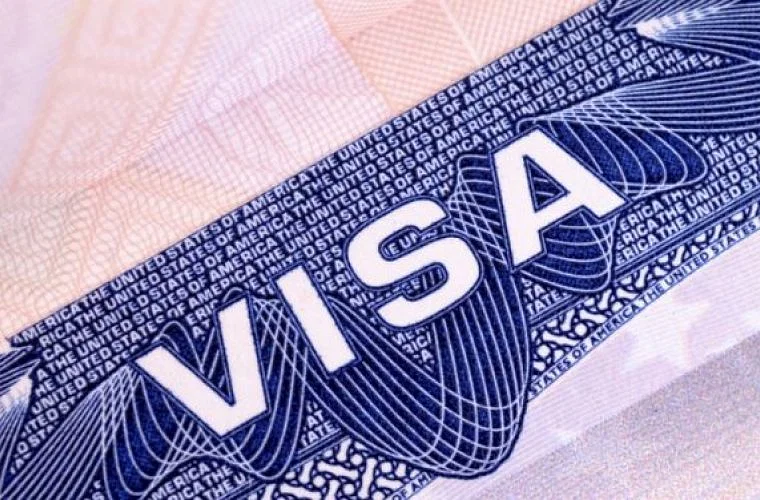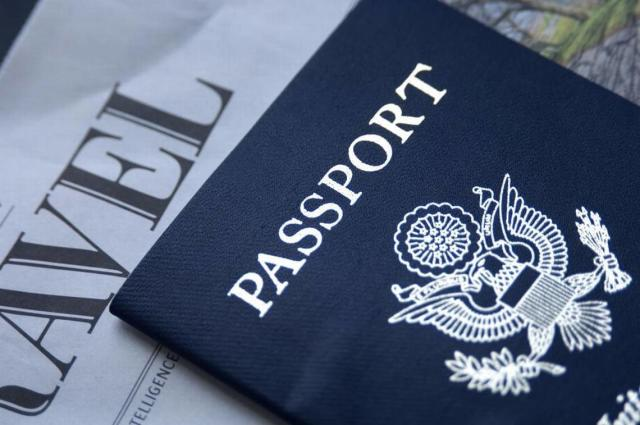Nigeria has recently implemented notable changes in its visa policies and requirements, affecting travellers to the country. These changes are essential to understand and can significantly impact your travel plans and visa application process.

Guidelines for Entry Visa and Freezone Application
Navigating the Entry Visa and Freezone Application process in Nigeria is essential for travellers and businesses. These guidelines provide a clear roadmap for initiating and completing your visa application, ensuring a smooth and compliant process.
- Visit the Nigeria Immigration Portal
Initiating your Entry Visa or Freezone application begins by visiting the official Immigration Portal's homepage. This portal serves as the central platform for all visa and immigration-related procedures.
- Access the Appropriate Application Form
Once on the portal, you need to locate and click on the specific application form designed for Entry Visa or Freezone applications. It's crucial to select the correct form that aligns with your intended purpose of travel or business in Nigeria.
- Complete the Application Form
Carefully and comprehensively fill out the selected application form, ensuring that all the required fields are accurately completed.
- Submit Your Application
After completing the application form, click on the 'Submit Application' button. This action will grant you access to the 'Applicant Details Page,' where you can review and verify the information you've provided. Double-check all details for accuracy.
- Online Payment
Proceed to the online payment section within the portal. Here, you will need to choose the payment currency, specifically selecting 'Pay in Dollars.' Click 'Continue' to proceed to the payment stage.
- Payment in US Dollars (for Applications Outside Nigeria)
For applicants processing their visa application from a location outside of Nigeria, it's important to note that your payment will be conducted in US Dollars. You will be directed to an approved payment platform where you can finalise your application and make the required payment in US Dollars.
- Attend Your Interview
On your scheduled interview date, make sure to gather all necessary documents, including your visa payment receipts and a valid passport. These documents are essential when you visit the Nigerian Embassy in your country of residence for your interview and further processing.
- Reschedule Your Interview (if needed)
If your interview date needs to be rescheduled for any reason, you have the option to do so. Send your Application ID, Reference number, and your proposed rescheduled date to the support email address provided for assistance in rescheduling.
Tourist/Visitor Visa Requirements
The requirements for obtaining a Tourist/Visitor Visa for Nigeria are critical to understand before planning your trip. This concise guide highlights the key prerequisites for a successful visa application, ensuring a hassle-free visit to the country.

- Passport Validity
To apply for a tourist visa or visitor visa for Nigeria, your passport must have a minimum validity of at least 6 months beyond your intended date of departure from Nigeria. This requirement ensures that your passport remains valid throughout your stay in the country.
- Completed Visa Application Form
Completing the visa application form accurately and comprehensively is a fundamental step. This form serves as an essential document for processing your visa application. Be meticulous in providing all requested information to avoid delays in the processing of your visa.
- Recent Passport-Size Photographs
You will need to submit two recent passport-size photographs as part of your visa application and as per the Nigeria Photo Requirement. These photographs should adhere to standard passport photo specifications, such as size and background colour. Ensure that your appearance in the photos is consistent with your current appearance.
- Letter of Invitation from a Company/Host in Nigeria
A crucial requirement for a tourist or visitor visa is a Letter of Invitation from a reputable company or host in Nigeria. This letter should not only extend a warm welcome but also accept immigration responsibility for your visit. It signifies the host's willingness to ensure your stay adheres to legal and regulatory requirements.
- Evidence of Sufficient Funds
To demonstrate your financial capacity to support your stay in Nigeria, you must provide evidence of sufficient funds. This evidence could include bank statements, a letter from your employer, or any other financial documents that show you can cover your expenses while in Nigeria.
Business Visa Requirements
For individuals seeking a business visa for Nigeria, it's essential to understand the specific requirements in addition to those already outlined for tourist/visitor visas:
- Passport Validity
Just like with tourist/visitor visas, your passport must have a validity of at least 6 months beyond your intended departure date from Nigeria.
- Completed Visa Application Form
You should complete the standard visa application form as required for tourist/visitor visas, ensuring all sections are accurately filled out.
- Recent Passport-Size Photographs
Submit two recent passport-size photographs that meet standard specifications in terms of size and background colour.
- Letter of Invitation
While a Letter of Invitation from a Nigerian company or host is a typical requirement for a business visa, self-sponsored businesspeople may not always need it. However, it's still essential to check with the relevant authorities or embassy to confirm whether a Letter of Invitation is necessary for your specific case.
- Demonstration of Sufficient Funds
Self-sponsored business travellers, in particular, must demonstrate their financial capability to support their trip. This can be achieved by providing evidence of sufficient funds, which may include bank statements or letters from financial institutions verifying your financial stability.
- Immigration Service Visa Payment Receipt and Visa Acknowledgment Receipt
As with tourist/visitor visas, you are required to provide proof of payment for your business visa application through the Nigeria Immigration Service. This includes both a Visa Payment Receipt and a Visa Acknowledgment Receipt.
Temporary Work Permit (TWP) Requirements
If you are applying for a Temporary Work Permit (TWP) in Nigeria, specific requirements apply to this category:
- Passport Validity: Ensure that your passport has a minimum validity of at least 6 months from your intended date of departure from Nigeria.

- Printed Application Form: Provide a printed copy of the completed application form for a visitor's pass. This form is essential for the processing of your TWP application.
- Recent Passport-Size Photographs: Include two recent passport-size photographs that meet standard specifications.
- Letter of Approval: A critical component of the TWP application is a copy of the Letter of Approval issued by the Comptroller General of the Nigeria Immigration Service. This letter signifies approval for your temporary work in Nigeria.
Subject to Regularization (STR) Requirements
Subject to Regularization (STR) is a specific category for individuals seeking to work in Nigeria under an expatriate quota. This involves a detailed application process, and the following are the key requirements:
- Passport Validity
As with other types of visas, your passport must have a validity of at least 6 months from your intended departure date from Nigeria. Ensuring your passport is up-to-date is a fundamental requirement.
- Completed Visa Forms and Passport Photographs
You will need to submit four completed visa forms, each in quadruplicate, along with four recent passport-size photographs. These forms and photographs are crucial for documenting your application and identity.
- Letter of Expatriate Quota Approval
You must provide four copies of the Letter of Expatriate Quota Approval issued by the Ministry of Interior. This official letter signifies that your employment in Nigeria aligns with the approved expatriate quota allocation.
- Credentials, Certificates, and Curriculum Vitae
Submit four copies of your credentials, certificates, and curriculum vitae. These documents should be verified by a relevant official at the Nigerian High Commission or Embassy. If these documents are in a language other than English, include English-certified translated copies where applicable.
- Offer Letter of Employment
Include four copies of the Offer Letter of Employment. This letter should outline the terms and conditions of your employment in Nigeria and must be signed by both the employer and the expatriate.
- Letter of Acceptance of Employment
Provide four copies of the Letter of Acceptance of Employment, duly signed by the expatriate. This letter signifies your acceptance of the employment offer and the terms outlined in the Offer Letter.
- Nigeria Immigration Service Visa Payment Receipt and Visa Acknowledgement Receipt
As with all visa categories, you are required to provide proof of payment for your STR application through the Nigeria Immigration Service. Include both the Visa Payment Receipt and the Visa Acknowledgment Receipt.
Visa Application Fees by Country
The cost of a Nigeria visa application can vary depending on your nationality and the type of visa you are applying for. Visa application fees are an essential aspect of the application process, and they help cover the administrative costs associated with processing your visa request. Here's how the fee structure works:
- Single Entry Visa: This fee is applicable when you plan to enter Nigeria once during a specified period.
- Multiple Entry Visa (1 Year): If you intend to visit Nigeria multiple times within a year, this fee structure applies.
- Multiple Entry Visa (2 Years): For travellers who anticipate multiple visits to Nigeria over a two-year period, this fee is relevant.
- Multiple Entry Visa (5 Years): The five-year multiple entry visa is suitable for those with long-term travel plans to Nigeria.
- Temporary Work Permit (TWP) Fees: These fees pertain to individuals granted temporary work permits for employment in Nigeria.
Subject to Regularization (STR) Visa Fees: Subject to Regularization (STR) visa fees apply to individuals who are subject to regularisation under the expatriate quota system for employment.
FAQS
Do I need a visa to travel to Nigeria?
Yes, most travellers to Nigeria require a visa to enter the country. However, there are some countries whose citizens are exempt from obtaining a visa for certain short-term visits. It is essential to check Nigeria's visa policy to determine if you need a visa based on your nationality and the purpose of your trip.
What types of visas are available for Nigeria?
Nigeria offers various types of visas, including tourist visas, business visas, transit visas, diplomatic visas, and more. The type of visa you need depends on your purpose of travel.
How can I apply for a Nigerian visa?
To apply for a Nigerian visa, you should visit the official Nigeria Immigration Portal and follow the specific application process for your visa category. This often involves filling out an online application form, making the required payments, and attending an interview at the Nigerian Embassy or Consulate in your country.
What are the general visa requirements for Nigeria?
The general requirements may include a valid passport, a completed visa application form, passport-sized photographs, proof of sufficient funds, a Letter of Invitation (for certain visa categories), and payment of the visa application fee. Specific requirements can vary based on the type of visa you are applying for.
Can I extend my visa once I'm in Nigeria?
It is possible to extend some types of visas in Nigeria. However, the extension process can be complex and may require you to apply through the Nigeria Immigration Service. It's advisable to check with immigration authorities for the specific visa category you hold.